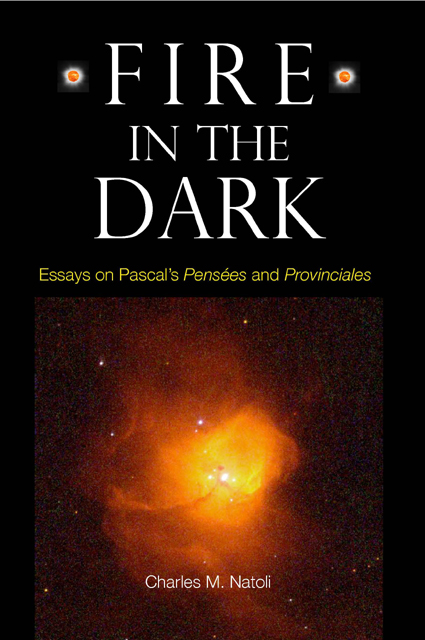6 - The Fundamental Role of Justice in Pascal’s Apologetics: The Hidden God
Published online by Cambridge University Press: 17 March 2023
Summary
Nec recuso, quod Caecilius adserere inter praecipua conisus est, hominem nosse se et circumspicere debere, quid sit, unde sit, quare sit . . . . Quod ipsum explorare et eruere sine universitatis inquisitione non possumus, cum ita cohaerentia, conexa, concatenata sint, ut nisi divinitatis rationem diligenter excusseris, nescias humanitatis . . . .
Unde autem vel quis ille aut ubi deus unicus, solitarius, destitutus, quem non gens libera, non regna, non saltem Romana superstitio noverunt?
. . . latebrosa et lucifuga natio [Christiana] . . . .
Nor do I object to what Caecilius has striven to advance among his chief points—that man ought to come to know himself, and to look around to see what he is, whence he is, why he is . . . . Which very thing we cannot examine and bring to light without an inquiry into all things, since they are so coherent, so connected, so chained together that, unless you carefully investigate the nature of divinity, you will not know that of mankind . . . .
But whence, who or where is this one and only god, solitary, alone, of whom no free peoples, no kingdoms, nor even any superstitions known to Rome have knowledge?
. . . the lying-hid and light-fleeing [Christian] tribe . . . .
Minucius Felix, Octavius (XVII, X, VIII)Does the Christian religion genuinely explain the mysteries of the human condition? Does it shed light on our grandeur, wretchedness, powers, foibles, origin, duties, destiny? That is to say, does it give grounds and causes for the realities of our situation, “raisons des effets,” that really advance our understanding? A considerable part of Pascal’s apologetics consists in the effort to show that Christian revelation, in particular when taken in the sense of St. Augustine, does indeed illumine the enigmas that we face and that we are.
Moreover, this theme is conceptually related to two of the main prongs of Pascal’s overall apologetic strategy as set forth in fr.S 46. The explicative power of Christian doctrine should make us wish that it were true, for it can allay many of the uncertainties that will inevitably baffle and vex the thinking person who does not know God.
- Type
- Chapter
- Information
- Fire in the DarkEssays on Pascal's <i>Pensées and Provinciales</i>, pp. 96 - 108Publisher: Boydell & BrewerPrint publication year: 2005



